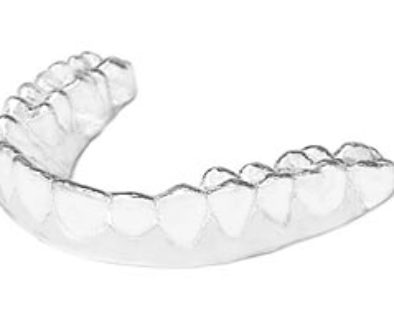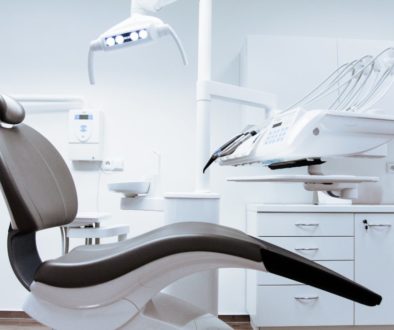Nerve Damage in Dentistry
 One of the rare complications of dental treatment is nerve damage. Clinically this is known as a paresthesia or dysesthesia. If you’re one of the people that this happens to, it can be pretty upsetting and you probably aren’t sure what to even expect long term.
One of the rare complications of dental treatment is nerve damage. Clinically this is known as a paresthesia or dysesthesia. If you’re one of the people that this happens to, it can be pretty upsetting and you probably aren’t sure what to even expect long term.
In most cases, the nerve damage isn’t your dentist or oral surgeon’s fault. It is just one of those random complications that occurs sometimes. It’s also important to remember that in the vast majority of cases your sensation will return on it’s own.
There are two nerves that are most commonly damaged, both of which supply the bottom jaw.
Lingual nerve – This nerve supplies sensation to one half of your tongue. Approximately 2/3 of cases of reported nerve damage occur specifically with this nerve.
Inferior alveolar nerve – This nerve supplies the sensation to your teeth, gum tissue, and skin on one side of your bottom jaw. Slightly less than 1/3 of injuries occur with this nerve. A small percentage happen to various other nerves.
Dental Injections
The exact frequency of nerve damage after dental injections has been a difficult thing for researchers to estimate due to how rare it is. I’ve seen estimates range from 1 per 100,000 injections up to 1 per 600,000 injections. No matter what the exact frequency is, it is an extremely rare event. In almost every case it is associated with a mandibular block injection (used for bottom teeth to numb the entire bottom jaw on one side). As a comparison your odds of being struck and killed by lightning are about 1 in 70,000.
It’s thought that the damage to the nerve can be due to either physical damage from the needle or from a reaction to the anesthetic used to numb the nerve.
Here is the good news. About 90% of cases of nerve damage associated with a dental injection will resolve all on their own within a couple of months. Even for those cases that don’t heal entirely, some sensation is usually regained. The healing process with nerves just takes some time. As long as nerves haven’t been damaged entirely, they tend to grow back and heal. Nerve growth rates range from about 1-5 mm per day.
Wisdom Tooth Removal
Removal of lower wisdom teeth has a relatively high incidence of nerve damage associated with it. Depending on the specific study it’s thought to occur in between 1-8% of wisdom tooth extractions. The reason for this is that lower wisdom teeth are in close proximity to the inferior alveolar nerve as well as the lingual nerve. The trauma from the extraction can damage these nerves. In most cases the damage is temporary with about 90% resolving in about 8 weeks. It’s thought that somewhere between 2-4% of cases of nerve damage end up being permanent.
Placement of Dental Implants
Dental implants are placed directly into the bone. If the implant comes into close contact with any branches of the nerves, it can cause damage to it. Most of these cases are preventable with proper planning beforehand. It isn’t unusual for oral surgeons and dentists to take a CT scan of the area beforehand to check for the exact location of the nerves so that they can avoid them.
Other Types of Dental Surgery
Nerve damage can also occur after other significant types of dental surgery including orthognathic surgery (breaking your jaw and resetting it for orthodontic reasons), periodontal flap surgery, and cyst or tumor removal. If you’re undergoing significant dental or oral surgery, discuss with your surgeon the risks prior to starting so that you aren’t surprised afterwards.
Treatment
Current recommendations for patients with nerve damage are primarily to monitor the extent of the loss of sensation and follow up for healing over time. As previously discussed, time heals most of these injuries without any additional treatment. For people who have permanent damage that is painful or difficult to manage, certain medications may be prescribed such as anticonvulsants.



